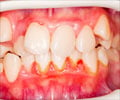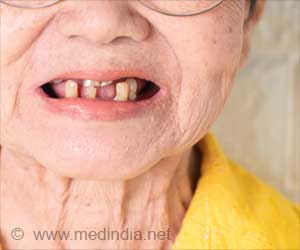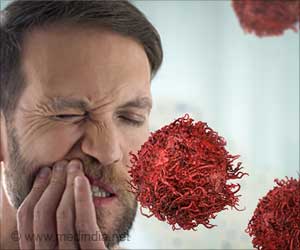Researchers developed a hydrogel, which is also composed of amino acids to trigger different biological responses in an infected tooth enabling regeneration.

How Painful is Losing a Tooth?
Each year, dentists in the United States perform more than 15 million root canals on infected teeth, removing the inflamed pulp and filling the emptied canal with inert materials such as rubber and cement. What remains is a mineral shell in place of a living tooth. Teeth lacking dental pulp are more vulnerable to cracking and can respond poorly to future bacterial infections and mechanical injuries.‘Developing materials-based therapy that does not contain live cells and could be sold off-the-shelf will be able to save lost teeth.’





“In particular, we’d prefer to avoid killing and removing a child’s permanent tooth that is still growing, but instead, help the roots thicken and lengthen,” said Vivek Kumar, a bioengineer at NJIT.To find a solution to this menace researchers created an injectable hydrogel designed to recruit a person’s own dental pulp stem cells directly to the disinfected cavity after a root canal.
Composed of biocompatible amino acid peptides that aggregate into fibers the hydrogel delivers biological cues to direct tissue growth as well as a scaffold structure to support it.
There are presently no FDA-approved technologies that successfully restore native dental pulp.
The tissue outside of the emptied canal, when poked, forms blood clots that secrete a protein called growth factor that signals cells to produce new tissue to support the root. While some regrows, it is disorganized, lacks the needed tissue differentiation – including nerve cells – and fails to mimic soft tissue.
Hydrogel Therapy Could Help a Wounded Tooth
By contrast, the research team’s hydrogel therapy mimics the body’s growth factor signaling and coupled with known antimicrobial mechanisms engineered into those materials is capable of promoting tissue healing and regeneration.Advertisement
One of the core challenges tissue engineers faces is creating blood vasculature, the plumbing that delivers nutrients to regenerated cells.
Advertisement
In a separate study the group tested a different hydrogel that contained just the antimicrobial peptide. The results showed that in combination with the peptides that spur blood vessel development, it was capable of creating scaffolds that performed both critical functions.
Going forward, they plan to combine and test both therapies in a single hydrogel.
Source-Medindia












